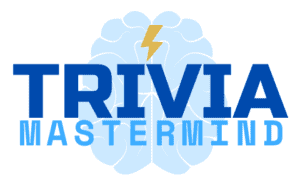
While doing research for this trivia site, I had to make sure that I would not be violating any type of copyright laws when creating trivia questions. There is also the possibility that I could inadvertently use already created trivia questions without even knowing. Ultimately, in order to protect my work, I had to know if trivia questions are copyrighted and what type of information is protected by law.
A trivia question specifically, cannot be copyrighted outright. What may be protected, is the information referenced in the question. If the content being referenced is a real-world fact, then it will likely not be protected. If the referenced content was imaginatively authored by someone, then it may be protected.
For example, asking what the capital of NY is, is based on a fact of our reality, so that information would likely not be copyrighted. On the other hand, asking what the protagonist of a popular TV show’s favorite food is, can be copyrighted.
It is important to also know that in some cases, real-world fact-based trivia questions can technically be protected as part of a larger work. In order to truly understand if you are violating any copyrights or protected work, you must understand Fair Use and apply it to your scenario for analysis before you proceed; the application is not as straightforward as it may seem.
Understanding Trivia Copyright and Fair Use
When discussing protected work, it is important to understand Fair Use. Fair use is a doctrine of United States law that allows for the use of copyrighted material without first having to get permission from the holder of the copyright. Fair use helps to balance the interests of the copyright holder and the public. In any case, where Fair Use is legally referenced, the following factors are taken into consideration:
- Purpose of use
- Amount of use
- Market Impact of the original work through the use
These aspects of consideration are weighed and assessed when looking at how a protected work is being referenced or used. If any of the above elements are deemed to be too severe, this would likely be a violation of Fair Use.
How the Legal System Assesses Fair Use
When using someone else’s work, you must keep in mind that the purpose of your work cannot directly compete with the work that you are referencing. In other words, if you decided to take 100 questions from a 150 question trivia game, copy them word for word, and use them as your own trivia game, you would likely have a problem since the purpose of each work is the same. In this same example, since the amount of information being used is substantial, this would also likely raise an issue. And finally, since this is something that could possibly have a massive impact on the original work by taking market share through a directly competing product, this would also be a potential violation of Fair Use. Now while this is a very simplified version of this analysis, it illustrates the thinking that goes into the legal assessment of Fair Use.
Since Fair Use provides the guidelines for how people’s protected works can be referenced or used within the work of others, it is important to understand how it has been ruled on. This should help you avoid any legal trouble. On the flip side, if you have protected work, you would want to avoid having other parties take advantage of and illegally make money off of your efforts. While the premise may seem pretty black and white, in practice, the legal outcome of using copyrighted work has varied more than you might think.
Ruling in Favor of Fair Use: When Using Someone Else’s Work is Ok
In the case of Fred L. Worth, Plaintiff-appellant, v. Selchow & Righter Company, Horn Abbott, Ltd., Defendants-appellees, 827 F.2d 569 (9th Cir. 1987), the author of two trivia books sued the creators of the game Trivial Pursuit for directly copying and using the trivia questions collected and recorded by the trivia book author and using them in their game.
Both of the trivia books were based on facts collected by the author over the course of years. During development, the creators of Trivial Pursuit used these books to copy a large portion of the questions to be asked during the game. The plaintiff (the author) was suing for damages of 300 million because he had claimed that the game creators had stolen his authored work. The game developers explained that these books were just a few of the resources that they had used to collect the questions for the game.
Ultimately, in this case, the judge ruled in favor of the defendants, the game creators. After consideration, it was decided that since these book questions were mostly based on real world facts, and the purpose of each product was substantially different, the questions were allowed to be used in the trivia game and damages would not be awarded to the plaintiff, the author. Fair Use protected the game creators and allowed them to use the already created work in their game.
Ruling Against Fair Use: When Using Someone Else’s Work is NOT Ok
In the case of Castle Rock Entertainment Inc. v. Carol Publishing Group, 150 F.3d 132 (2nd Cir. 1998), the producers of the tv show Seinfeld, were suing a publishing company for using the sitcom as the topic of a trivia book.
The book used trivia questions that were created directly from the content of the TV series. While the publishing company cited Fair Use as the grounds for being able to use this work for their trivia book, the production company contested that the “facts” were created under original creative authorship, therefore, they should be protected under copyright.
In this instance, the judge ruled in favor of the plaintiff, the TV production company. After reviewing the composition of the book and comparing it to the sitcom, it was decided that since the trivia questions were based on originally authored creative work, they were in fact considered protected expression. Fair Use protected the TV production company; the court ruled that the book could no longer be sold.
Understanding the Case Outcomes and How they Differ
It is important to note the distinction between the two cases. While each instance has similar premises, the rulings were opposing.
In the first case, even though the game creators copied the trivia questions, the judge still ruled in their favor, because it was decided that facts by nature, cannot be protected by copyright. So even though, the game creators outright copied the questions from the book, the information being copied is not protected, and the intent of the game product versus that of the book was concluded to be different enough.
What is important to note here is, even though the game creators copied trivia questions from the books, the two factors that protected and allowed them to do so were the types of questions and the purpose of using these questions. Since the questions were general facts, that weighed in favor of the game creators. And since the book and the game were decided to be different enough in purpose, this also favored the game creators.
In the second case, while the defendant did not outright copy their trivia questions from the TV sitcom, they still lost their case because in this instance, the information being used was creatively authored originally. Even though the work of the book according to the defendant was derivative, it was ruled instead that since the work is protected expression, which is copyrightable, the trivia book could not use the content of the sitcom for their work.
In this instance, while the circumstances were similar to the previous case, the deciding factors worked in the opposite favor. While the publishing company did use information from the TV show for their trivia book, this information was not based on real-world facts. This information was based on a reality that was created by authors. Because of this, these “facts” are not real-world reality, rather, these facts were created by someone, which is a form of protected expression.
Ultimately, it is imperative to take care of how you approach using or referencing someone else’s work within your own. If you are going to be copying or referencing things, it is almost always most advisable that you seek legal counsel to discuss the parameters. Ultimately, if you are going to use originally authored, creative works of fiction, your best bet is to reach out directly to the creator and get written permission. If you are planning on using or copying unprotected facts from pre-existing work, make sure you avoid using someone else’s work identically, especially if the purpose of your work is a conflict of interest to the original. You are almost always better off creating your own original work and avoiding the potential of an ugly expensive court case.
